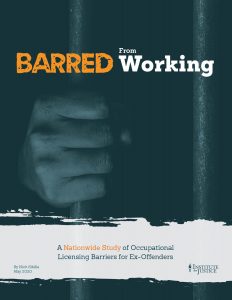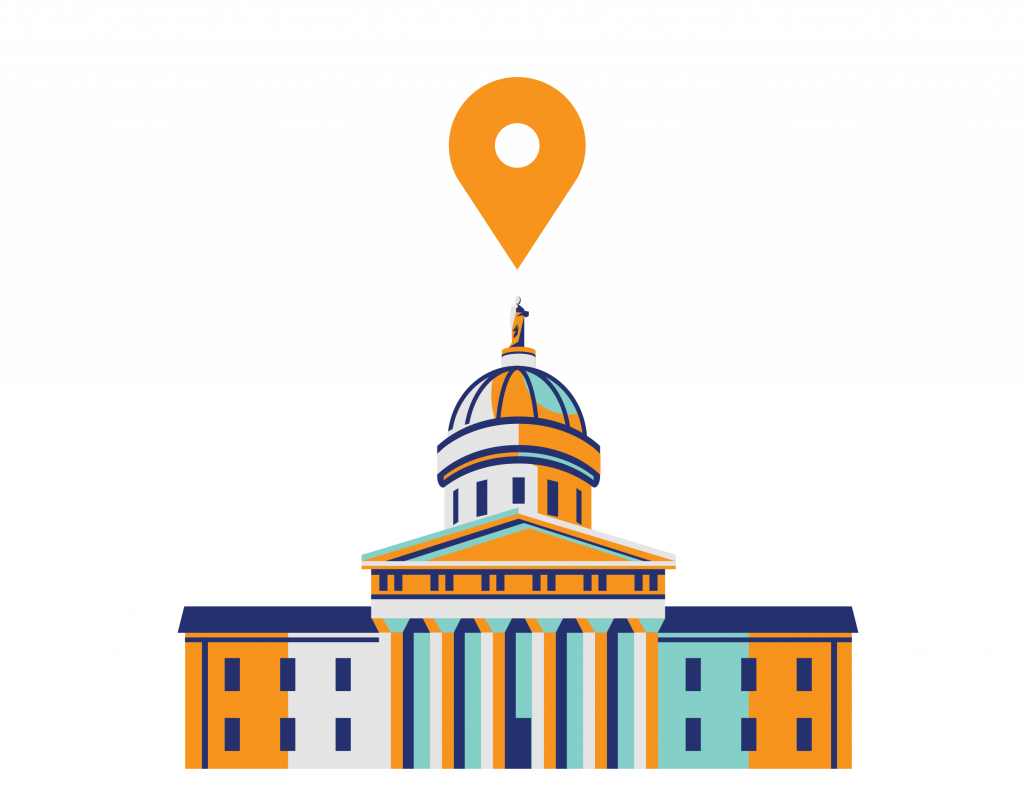Allow returning citizens who have paid their debt to society to get back to work

Many of the industries hit hardest by the economic shutdown and layoffs during the COVID-19 crisis have traditionally been the most welcoming to people with criminal records, and people with criminal records will struggle to find new work in less-welcoming industries that treat a criminal record as an automatic disqualifier.
But a job is the best way to lower recidivism. And research shows that states with more occupational licenses have increased recidivism, as licensing creates huge barriers to obtaining work. Today, nearly one in five workers need a license to work, while one in three Americans have a criminal record of some kind.
IJ’s model legislation, the Collateral Consequences in Occupational Licensing Act, helps expand economic opportunity for ex-offenders without jeopardizing public safety.
Under this model, licensing boards:
- May only disqualify an ex-offender based on a conviction “directly related” to the license sought;
- Must consider any evidence of rehabilitation for each applicant, along with their employment history and testimonials;
- Cannot exclude applicants with criminal records based on arrests, old or expunged convictions, or use vague, arbitrary terms like “good moral character” or “moral turpitude”; and
- Must create a petition process so that ex-offenders can see if their criminal record would be disqualifying, before they invest in any time-consuming training.

Since 2015, 32 states have eased licensing barriers for ex-offenders, with the most sweeping reforms enacted in Indiana, New Hampshire, and Iowa. According to , a new (June 2020), 50-state survey of licensing barriers from the Institute for Justice:
- 11 states have imposed a time limit for considering old convictions, aside from sexual or violent felonies;
- 15 states have barred boards from using moral character to block applicants, while another 5 states have repealed good character requirements found in many of their licenses;
- 16 states currently use the directly related standard when considering criminal convictions;
- 17 states have created a predetermination petition process; and
- 32 states require boards to consider evidence of rehabilitation.
After Illinois significantly eased licensing restrictions for people with criminal records, more than 1,600 ex-offenders have been granted licenses to work across nearly 100 different occupations over the past two years. Nursing was by far the most popular field, accounting for well over one-quarter of all licenses granted to ex-offenders.
Get Started Today.
Please fill out this form and an IJ staff member will reach out to you shortly.
